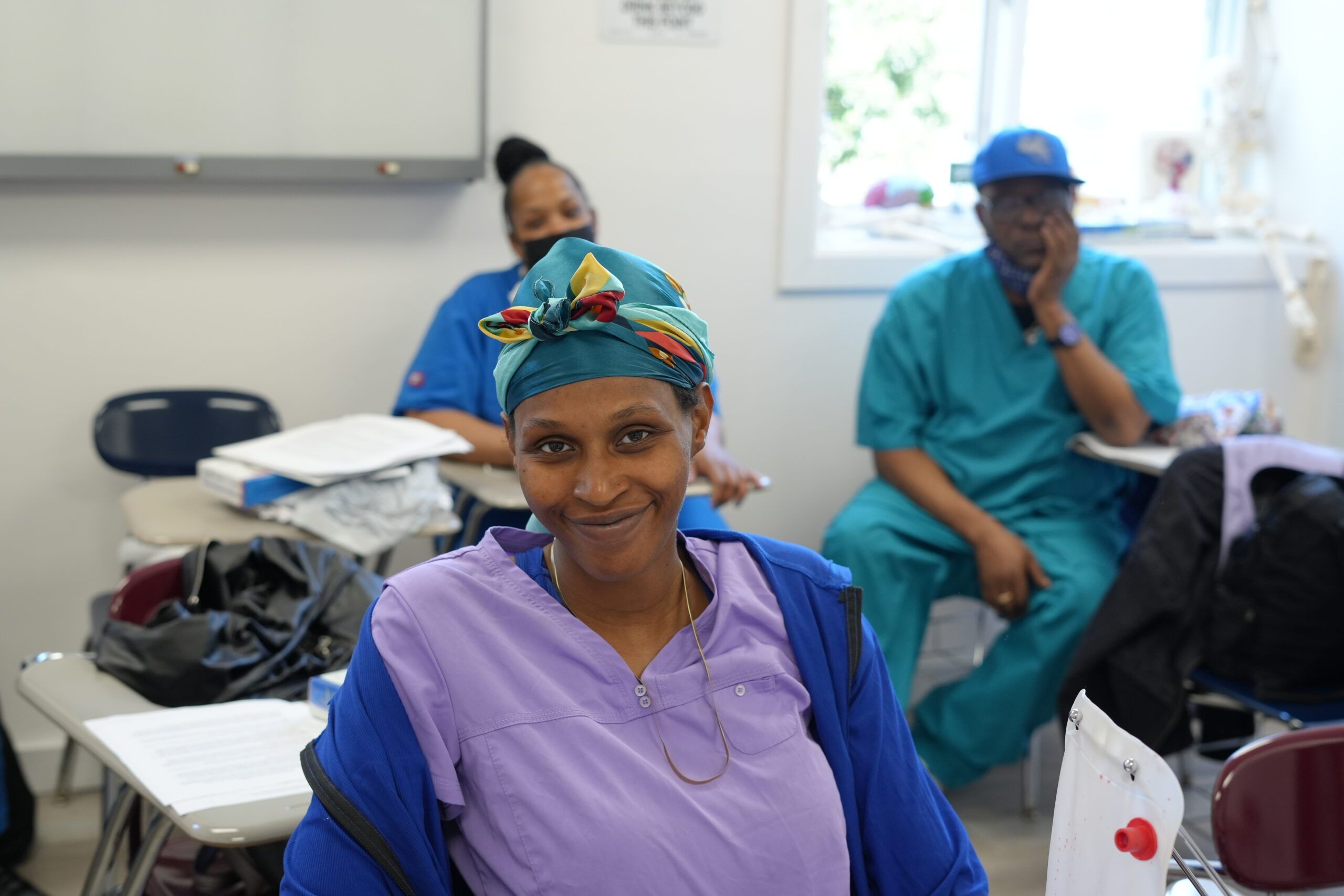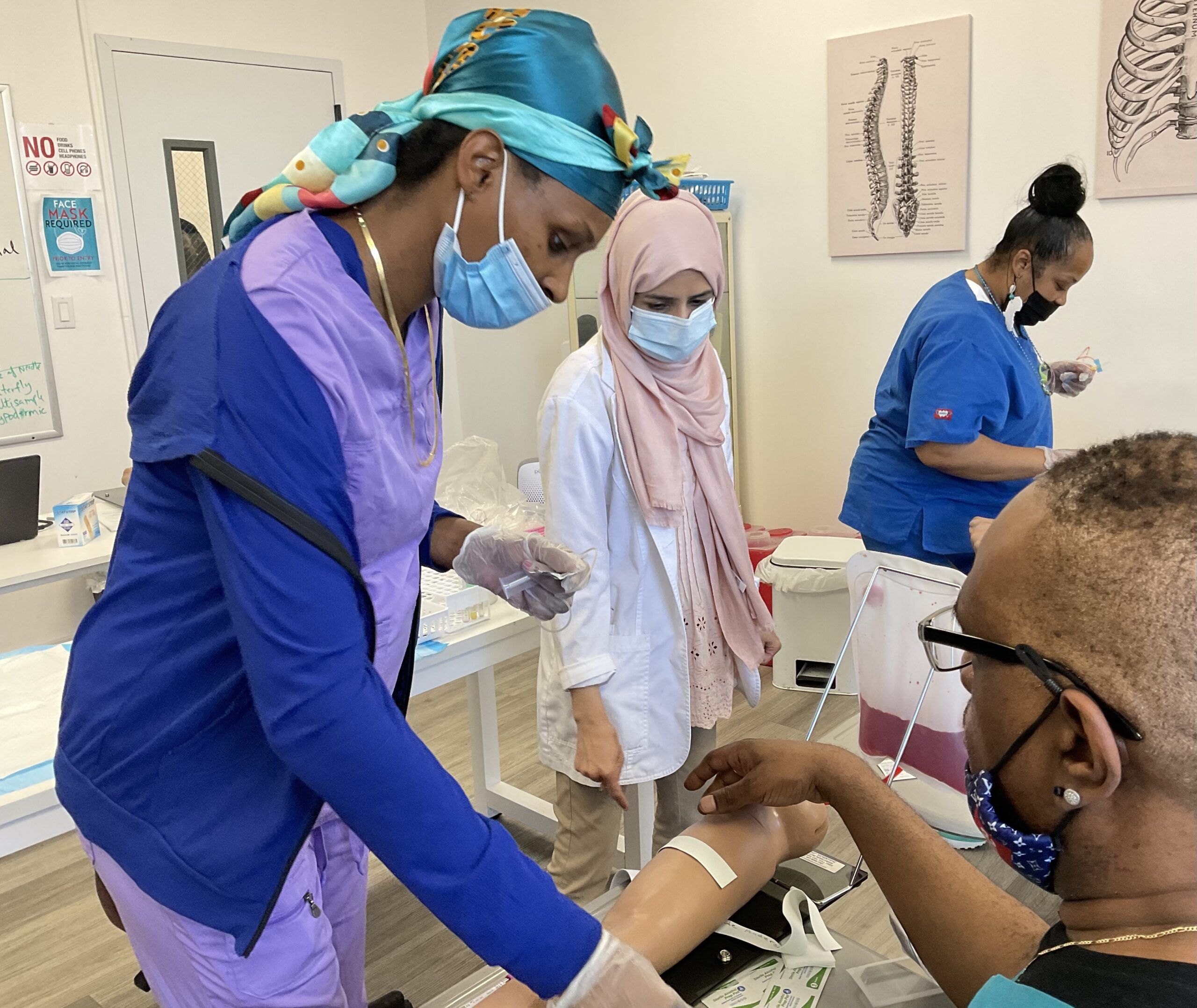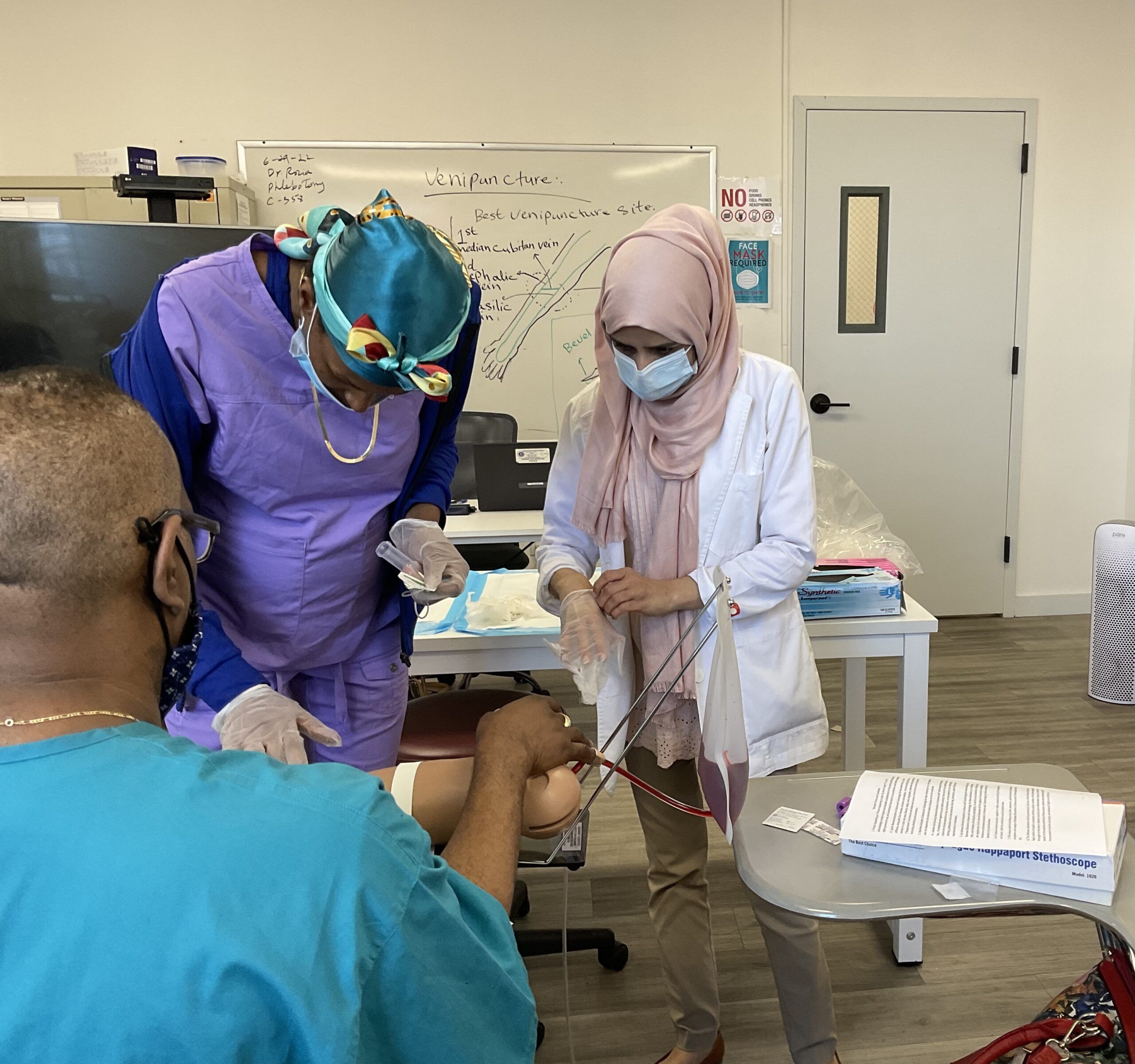
Imagine you’re excellent at retrieving blood samples as a phlebotomy technician but don’t know how to ease the nerves of a patient with a blood phobia. Or, what if your ability to take the lead when it comes to office organization is always celebrated, but you have difficulty performing tasks at the request of your colleagues when they need assistance? Maybe you’re comfortable and efficient at reading EKG reports, but you don’t acknowledge the repercussions of showing a reaction to a concerning test result as an EKG technician.
Working in a healthcare setting, as 14 million people in the United States do, according to the U.S. Department of Labor Statistics, requires a level of academic and professional knowledge and skill. However, it also requires a number of personal skills and character traits that are often harder to learn in a classroom setting. There is so much more to a medical office specialist role–no matter the environment in which you choose to work–than just the hard skills of completing tasks and performing tests. Read on to learn how soft skills may be just as important to success in a healthcare setting as hard skills.
1. Emotional Intelligence in the Workplace
Emotional intelligence (EQ) allows for patients to receive better service while also achieving improved results. This comes into play in many areas of healthcare, and graduates of medical office specialist school may need to train and retrain some thought and behavior patterns to reflect their best EQ.
One solution to improving EQ is taking careful note of your own trends in behavior. You can do this on your own or with the assistance of a trusted colleague, asking them to provide constructive feedback on your performances. Once you identify areas of improvement based on your habitual actions, you can work on improving them each time you encounter a similar situation. Through the client relations course in your program at MSCT, you will gain practice in thinking in the best interest of each client, helping you visualize the best possible interactions.
2. Professionalism in Medical Office Specialist School
When you begin your program, whether you want to go on to earn your EKG technician certification or you want to work as a medical front office assistant, you will need to exude professionalism. This is difficult to teach in the classroom and requires some dedication from each student inside and outside of the program to see improvements.
While you may understand the important aspects of professionalism that include protecting patient privacy and confidentiality, you may find it challenging to maintain an appropriate professional distance in relationships with respect to boundaries. Practicing professional behaviors and turning them into ingrained values and habits will help you succeed in this essential soft skill. This can look like asking for accountability from your colleagues to help you maintain appropriate levels of relationships, as well as putting aside your own personal beliefs or opinions to best serve your patients and clientele.

3. Punctuality at Work and Beyond
Punctuality is crucial in a healthcare setting. Without punctuality, many appointments will run into one another, patients will end up frustrated, and important tests and results may be delayed. Whether working in the front office or performing blood collections as a phlebotomy technician, punctuality is key after medical office specialist training.
This soft skill can be practiced during your program at MSCT by arriving to each and every class, advising appointments, and lab early and prepared. You can also practice punctuality outside of your program to help it become second nature. Try meeting up with your friends on time, waking up on time, etc., as often as you can.
4. Critical Thinking Beyond the Task at Hand
Critical thinking in healthcare is another soft skill that is encouraged in the classroom but must be carried out by each student on their own accord. This requires taking into consideration all collected information through observation, experience, and communication. Then, skillful perception, analysis, and evaluation of the information is required. You can practice this soft skill by taking a step back every time you encounter a situation that may require another level of attention. Slowing down, considering all of your provided details, and making an informed decision on what action to take will help you improve your critical thinking skills.

5. Subordination as a Team Player
Working in healthcare requires each employee to be a team player. The amount of collaboration and communication required for proper and successful patient care relies on the smooth inner workings of the healthcare team as a whole. Subordination may look like stepping aside for a more qualified professional to take over. Or, it may present itself when you are required to set aside your own individual interests to be able to think and act on behalf of the patient and their best interests. Voluntary subordination allows healthcare environments to operate smoothly and best serve each patient.
Interested in earning your medical office specialist certificate?
Do you know that you can book an appointment with our Licensed Admission Counselors online, and choose the time that is convenient for you?
Please click on the following link to set up an appointment: calendly.com/eshl
Call our School, apply on our Landing Page https://learn.manhattanschool.edu/ or Reach Out to our Licensed Specialists at Tel: 718-500-2632
